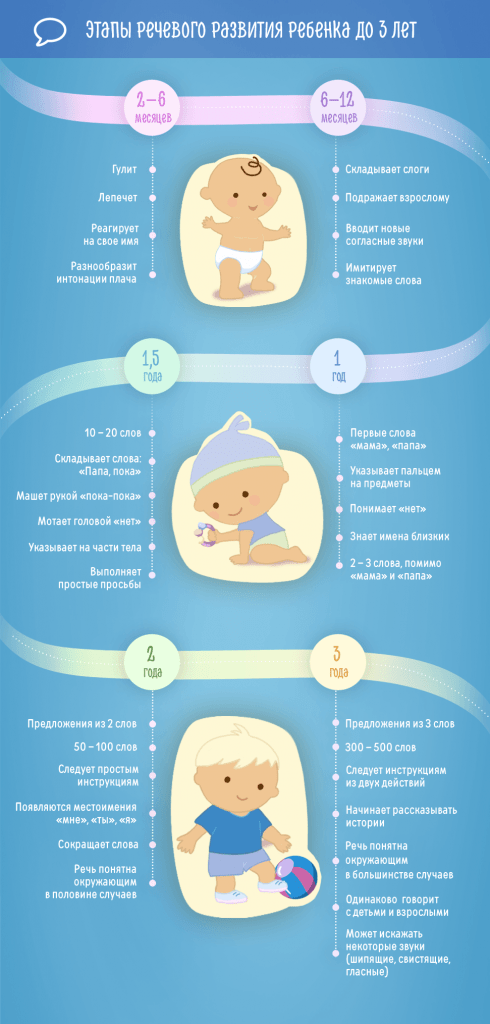
How to support the speech development of a child?
Content
Knowing the process of developing a child's speech is important for every parent, as it allows you to monitor the progress of the baby and respond in case of any deviations. Is it possible to make the first steps in the world of language easier for a baby? Find out in our article.
There is no specific moment when a child should start talking - a lot depends on his individual predisposition and environmental factors. Although there are age limits that determine the approximate time for the development of individual language competencies, they are quite wide - for example, a baby may begin to build sentences between the second and third year of life.
However, don't worry if your toddler's peers are already building sentences and he is still learning individual words. Applying pressure will do little, or rather, it will be counterproductive. Demanding something from a child that he cannot justify can disrupt his development. However, the same is true if the parent does not respond in case of any difficulties.
Parental support is important, but remember that if you notice any abnormalities in the development of speech, seek help from a specialist. Children's speech therapist can determine the source of the problem and prepare a special set of exercises that the child can perform with the help of parents.
Speech in a child - what affects the pace of its development?
Many factors can influence the speed of learning to speak. The most important are:
- baby environment - whether the child is an only child, whether he has brothers and sisters, whether he is at home with a parent in the first years of life or immediately goes to a nursery;
- individual predispositions - as with walking, babies also talk at different paces depending on their predisposition;
- number of languages spoken at home - bilingual children begin to speak much later, because they learn languages in two ways; in the case of three languages spoken at home, this process may be even slower;
- how you talk and talk to your child - if you speak with the baby in a semi-difficult manner, shortening them and changing the words to "children's", this can slow down the learning of speech;
- everyday learning through play – The quality of the content and the way the child sees play can have a very big impact on the pace of learning.
How to support the speech development of a child?
There are at least a few good practices that you should incorporate into your daily life to support your child's language development in the first months of life and beyond. Children under the age of 7 learn most of their language skills at home, and in the first years of life they can mainly be helped by their parents. How to teach or support a child to speak?
- Reading to him is an activity that helps babies fall asleep, but it's also worth doing to stimulate baby's language development. This is the best way to enrich your child's vocabulary and speed up their development.
- Concern for clarity and clear pronunciation of everyday messages.
- Try to name feelings and phenomena with your child, and not just communicate.
- Using sensory learning methods, the child remembers better, using various senses in this process.
- With the help of exercises for the development of speech.
- Choose fairy tales and books recommended by speech therapists.
Books that support the development of a child's speech - which ones to choose?
Books should be given to children from an early age. It is best to accompany the child from time to time to look at them, encouraging him to tell aloud what is shown in the individual pictures and make up a story.
Books for the youngest childrenspeech learning support should be:
- provided with simple one-sentence descriptions written in capital letters;
- colorful, with convenient graphics and drawings;
- thoughtful in content - should encourage the child to actively participate in learning.
When looking for books for children, pay attention to the age category. However, you should not stick to it with iron consistency if the child demonstrates slightly lower language abilities than his peers.
Games that stimulate the development of speech
Below are some suggestions of exercises, divided into specific areas of speech:
Correct articulation and development of speech organs
Among the speech exercises recommended by experts, one can find typical speech therapy exercises that, contrary to appearances, are easily integrated into everyday fun. A good example would be vocal art exercises such as snorting, inhaling, imitating animal sounds, or yawning. Such exercises improve the functioning of the organs of articulation and stimulate the respiratory system.
Rich vocabulary
In the context of enriching vocabulary and increasing fluency in the first stages of life, the so-called verbal bath is used, i.e. description of the environment for the child. With this method, the caregiver describes the actions or looks he is doing - all that the baby can also see, hear and feel. This is a great way to support your child's speech development.
Diction
Tongue twisters are best suited for diction. Children often enjoy these activities and can spend hours practicing pronunciation of sentences such as "a table with broken legs" or "King Charles bought coral-coloured beads for Queen Caroline." Such fun will certainly improve their language skills in the context of pronunciation. Of course, we are talking about preschoolers and older children - this game is unlikely to be attractive for younger children.
A parent is a great support for a child in terms of speech development. The most important thing is to imitate it in various ways and accompany your little one to learn by reading and practicing together. It is equally important to carefully observe this process and respond if you notice any irregularities.
:
